Open Letter to ELPS
The Portrait Editorial Board presents an Open Letter to the School District

Photo by Aishah Abdulkadri
Completed on May 3, 2021. Hands of different skin tones surround ELHS trojan head against blue background and border.
The Portrait Editorial Board presents an Open Letter to the School District.
Portrait is the official representation for our student voice. It is also the voice of our community; our staff, our teachers, our parents, our local businesses. Here are some proposed solutions to things we have discovered students want to improve–to change and grow alongside us.
Want to add your signature in support of these resolutions? Click here. Anyone can sign!
Anything in bold is the topic being addressed, while the rest is the changes we wish to see.
Equity/Social Justice Teams
In the aftermath of the notorious slavery assignment, it is apparent that we need equity teams. There should be parent and student led equity teams to address new curriculum and analyze existing assignments. We propose a team of district-nominated officials that will run meetings open to the district parents, students and employees and that must be approved by student leaders. For student equity teams, school club leaders should be invited to be on the board, but anyone can run for board positions.
An equity team only made up of district employees will always be held back from their full potential because they are employees that are paid by the district, which puts their work towards equity directly in line with their paycheck. Additionally, the majority of our staff is Christian, white, middleclass, cis and straight, a demographic that is not reflective of the community at large. The equity team should be representative of the community and provide insight that staff members are unable to.
Apart from curriculum, equity teams should have a hand in new hires, analyzing transparency reports released by the district, school signage and consistent conversations with administrators to implement change that has been asked for.
Curriculum
New curriculum should be approved by equity boards, and existing curriculum should be reviewed and re-approved. This would be doing a complete overhaul of our current curriculum and questioning if everything is still relevant and applicable in an appropriate fashion within the next five years.
- English classes should have 60% of readings by non-white authors. It should also breach subjects that include other demographics; members of the LGBTQIA+ community, varied socioeconomic status’, physical abilities and disabilities. This is not preaching for the disappearance of Multicultural Literature, but having more multicultural lit in our normal English classes.
- Health classes should cover/offer options for students who aren’t heterosexual to learn how to have safe sex. This also goes for heterosexual students, as there are very few who will remain abstinent. It should also go in depth as to what constitutes consent.
- History should focus on more than black-white history. Inclusion of Asian, Indigenous/Native, Latinx, Middle Eastern/MENA, and more African and Black history should be included. More guest speakers, specialists, would also be welcome. When addressing negative aspects of a minority demographic, reasons should be given on why that group of people is in that situation in the first place.
- Native American history, especially of Michigan, should reappear after elementary school.
- The curriculum in its entirety should be reviewed by equity teams every year, on a rotating basis by building or subject.
Club Leaders and Advisors
Like coaches, there is a demand for advisors to also get paid. In addition to rewarding them for the hard work they already do, this would act as an incentive for them to do more. Another solution would be giving clubs a stipend so they are able to buy things as they’re necessary instead of constantly holding fundraisers.
Club leaders are elected by students and are genuine representatives. Social justice clubs, some of the most active at ELHS, also help target existing problems like AP class discrepancies, as well as far larger problems like systematic racism in the district. Administrators should listen to these students and try to implement as many solutions as possible.
Supporting our Staff
There have been more signs of teachers burning out- and the rate’s have accelerated exponentially. ELPS wants our teachers to stay, to be happy, and they are a crucial part of a students daily environment we must protect.
- Mental Health surveys (and follow up)
- District paid therapy
- More sick days
- Monthly luncheons
- Celebrate teacher appreciation week, driven by administration or student council.
- Make sure they don’t feel isolated- especially staff of color. We can’t afford to lose the few we have.
- Be aware that everyone has limits, even the younger teachers who seem to have endless energy.
- A COVID-19 bonus
- Lower student vs teacher ratios
Religion
- As mentioned previously, religion should be taught in social studies classrooms by professionals with a better grasp on the subject. They should also be addressed respectfully and nonjudgmentally, and Christianity should not dominate the conversation.
- Include: Islam, Judaism, Indigenous practices, Taoism and Buddhism.
- Objective guest speakers will be the most accurate and engaging for learning about religion correctly. Local experts are available upon request.
- Ramadan is a sacred holiday and should be celebrated and respected as such. Testing, while not completely negated, should be considering this.
Our Planet
Students should be taught the importance of preserving the environment, and these ideals should be mentioned at large school meetings like assemblies. On top of teaching its importance, the district should attempt to be as eco-friendly as possible. That includes:
- Being “plastic cautious”
- Using renewable resources when possible
- Purchasing lightbulbs that are energy efficient
- Designating a clear place for bottles to be sent (as these are also worth money, this could serve as school funding)
Scheduling
The return of student-centered scheduling: Surveys sent to students before the Master Schedule is created is an exceptional way to know how many sections of what courses will be offered.
The Master Schedule itself should be assessed and approved by a group of students and teachers who aren’t only department chairs once it has been planned. This allows for holes to be poked and filled before being finalized.
- The return of independent studies
College Assistance
- Admission officers should be attending year round, alongside hands-on people; business owners, skilled trade professionals, anyone who is willing to speak to high schoolers about future possibilities outside of a university-only option.
- A frequently asked question sheet in Student Services
- Financial aid opportunities/assistance
- Scholarships websites
- College application help
- Information for underclassmen, juniors, and seniors on how to prepare.
SAT/ACT
- Generally more basic information: What is it, when, what does it affect?
- Transparency of waiver code for low income families
- How to prepare and list of test prep websites (with free options)
School culture
- Welcome school of choice scholars
- Students on free and reduced lunch should be told the resources (apart from lunch) that are available for them every semester.
- Microaggressions dressed as jokes or in other forms should also be investigated and lead to, at least, a conversation with administration.
- Body positivity and mental health posters should continue to be on high school walls, as well as elementary and middle school walls.
- Land acknowledgement during announcements and school sponsored events (ie: sports games).
- Emergency fund for families who are unable to cover basic needs (homeless students, especially).
- More staff of color in influential positions and as teachers. A hiring process that provides incentives for applicants
- Community partnerships between the district and real estate/utility companies for teachers to find affordable housing
- A way for them to anonymously submit issues (focus on conflict resolution)
- A job that doesn’t make them ignore part of their identity
- Conversations on colorism
- Directly addressing the aversion some feel towards BIPOC students
- Being thankful to our janitors, bus drivers, lunch people, etc. This can be encouraged through signage or announcements.
Peer to Peer Support
The district should provide this service to assist students in long term success. This can help all students, whether that’s NHS students to get hours, students who want to add to their resume, students who need help, and students who are in credit recovery programs. It will also lower our numbers of students in summer school or E2020.
MSU students could also help tutor if they need hours. Student service is recommended to facilitate this. This doesn’t have to be limited to academics, and this could serve as a place for students to talk about and prepare for work experience; practicing job interviews, building resumes and cover letters, or even doing college prep.
- Proposed frequency: after school, three days a week for an hour
Pledge of Allegiance
While it is a State requirement, some teachers get aggressive about student participation, which is unacceptable. ELPS is proud about our international population, and it makes little sense to force people who are permanent residents or people of other countries to do the pledge. Saying “under God” may also be uncomfortable for students.
Communication from Administration
There is a difference between summarized and purposely avoiding the subject and being vague. We request honesty and open dialogue.
- Emails should be sent to parents and students. The families can then decide how they handle the information.
- Students in ELL programs or with parents who are not fluent in English should have options to read announcements in their native language.
- Communication should be concise and reiterated, as well as announced once confirmed.
- Interviews from student journalism programs should be respected.
- Questions/emails from students/parents should be prioritized.
- The link to school board meetings should be easily accessible.
Town Hall hosted by Portrait- week of May 30th
We recognize that these issues only scratch the surface of how students want to see our district’s culture and behavior changed for the betterment of our district. To include and address the concerns of all students, we as an editorial board will host a town hall where students can speak directly and frankly to our decision makers in an effort to increase transparency between students and administrators.
We request the attendance of the elected School Board, Dori Leyko, Glenn Mitcham, Richard Pugh, Andrew Wells, and a representative from the counseling office.
Disclaimer: Post publication we were made aware of the fact that there are resources on Student Services but we stand by our request to make them more accessible. We also removed the following line after discovering that they are not ELPS employees:
- Annual bonuses from district

The editorial board is an application-only group of student staff members that ensures the smooth running of the publication. Members have varying responsibilities,...

Aishah Abdulkadri is a member of the Class of 2022 and one of the Multimedia Editors for Portrait. This is her first year on staff as a Junior. Aishah’s...


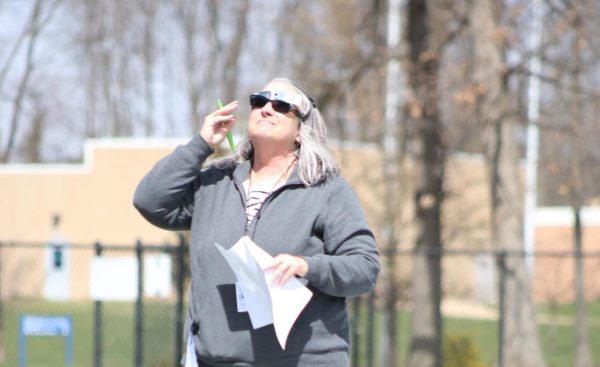

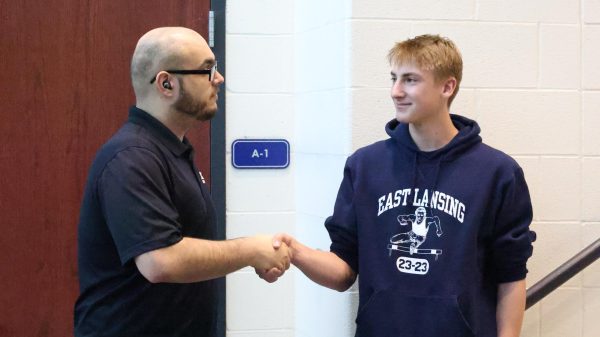

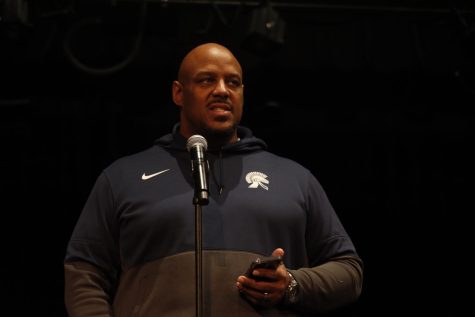
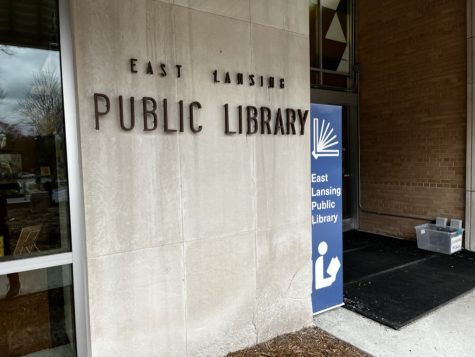
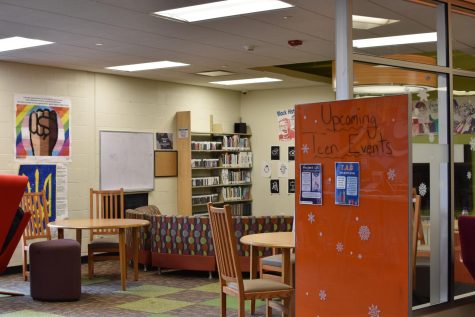
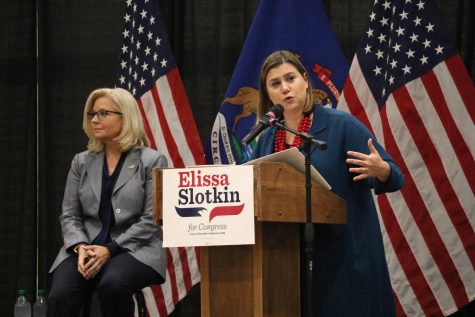
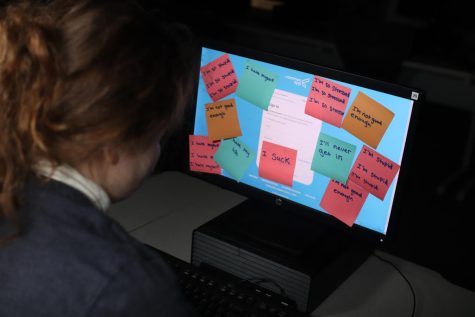

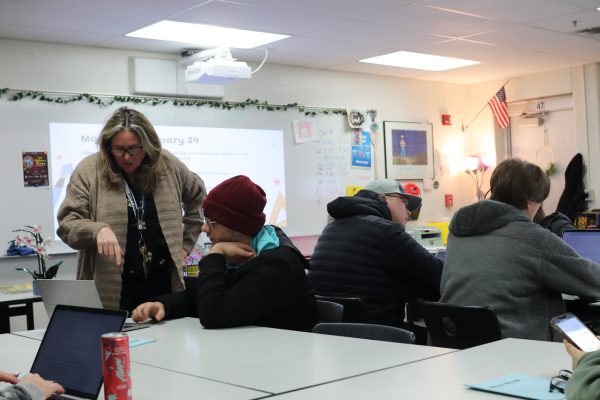
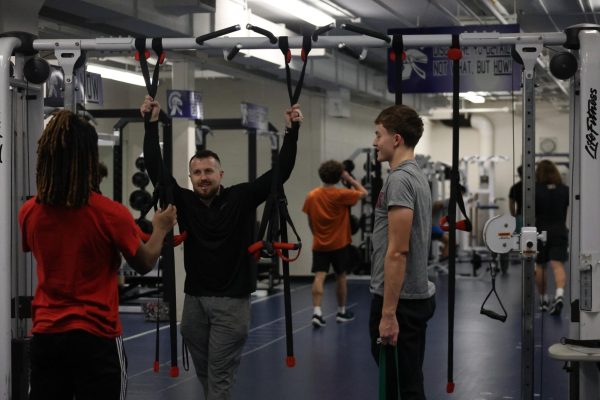
Rick Brunson • May 14, 2021 at 3:46 pm
As an ELHS graduate and 40 year retired Michigan teacher, in my professional opinion this is overkill.
How many instances of inappropriate student assignments have we had in the past 50 years? I don’t think too many. An issue like this can and should be dealt with promptly by the school on-site administration. To create an additional layer of oversite for a few apparent egregious assignments is not warranted.
Ira Elliott • May 14, 2021 at 9:15 am
As a founding member of Portrait, I support the initiatives outlined in the open letter.
kelly hirai • May 13, 2021 at 11:23 pm
class of 1985. this brings into focus many of the misgivings i had about my high school experience. respect to you students trying to make changes.
Lynette Long • May 11, 2021 at 5:25 pm
Stand up ELPS students! Bravo to you. We “see” and hear you. Our students need to see a representative of themselves in the classroom and in administration. Continue to let your voices be heard. You ARE somebody!
Marrissa Ortiz-Torrez • May 9, 2021 at 10:28 am
ELHS alumna – 1996. ¡Enhorabuena! Congratulations to the students addressing long-standing issues. Mario Torrez, my father, served as a history and Spanish teacher at ELHS 1973-1981 and foreign language department chair and Spanish teacher 1988-1997. He fought to remain an ELHS employee during his early years. Thankfully, he was able to become certified K-12 so that when he was pushed out of ELHS, he was able to serve at Spartan Village Elementary School. After his retirement he was disappointed, but not surprised, to hear of similar struggles from fellow ELHS and ELPS faculty members. Siempre pa’lante. Always moving forward.
Payel Gupta • May 8, 2021 at 6:02 am
I am in support. Thank you for writing this letter.
Charlie Croom • May 7, 2021 at 9:47 pm
So many good ideas in here and ways to prepare kids better for their futures ahead, please take these seriously. Admin or students, reach out to me if there’s ways we can make these happen.
Joshua Garcia Jones • May 7, 2021 at 3:35 pm
I fully support these initiatives. It’s about time we decolonized the curriculum and institutional culture at East Lansing Public Schools.
Joshua Garcia Jones • May 7, 2021 at 3:34 pm
I fully support these initiatives. It’s about time we decolonized the curriculum and institutional culture at East Lansing Public School.
Erin McGraw • May 7, 2021 at 12:31 pm
This is amazing. I fully support!
Jonah • May 7, 2021 at 11:49 am
I agree and fully support this letter. But Judaism should be included in both the history and religion sections. As Judaism is not only a religion, we are a people with over 5000 years of history that should be included. We are more than just what has happened to us recently. As to that I think that there should be more of an in-depth look at the Holocaust and the ramifications of it. All most people know about it is the number 6 million, Anne Frank, and Nazi’s. Most history books only include about a paragraph about it. What is never discussed is the long term affects of inter-generational trauma and how the world Jewry has not recovered. Before 1939 there were 17 million Jews currently there are only 14 million over 70 years later. And the fact that 2/3rds of all of Poland’s Jewry was wiped out, there are more Jews who descended from the Jews that Schindler saved, than there are currently Jews in Poland. We should also learn more history about the Romani people and how Jews and Romani were the two groups targeted fro extermination completely by the Nazi party. We should also learn more about the other types of Jews and their experiences. While Ashkenazi make up the majority of what is in America, most Jews world wide are not. We should learn about the experiences of Sephardi, Mizrahi, and Beta Israel (Ethiopian tribe). Especially Mizrahi who are constantly erased from the conversation.
Timmy Hirschel-Burns • May 6, 2021 at 9:47 am
I fully support this letter.
Emily Holmes • May 6, 2021 at 8:12 am
My pride in the students in this district grows every day. Your voices are IMPORTANT and STRONG. We can all work on making our school, district, and community a more inclusive and representative environment that honors and celebrates all of those voices — especially those that have been silenced in so many ways. My heart is full.
yusra kulam • May 6, 2021 at 12:07 am
great points and great first steps
Nadia Theders • May 5, 2021 at 11:00 pm
Yes!!
Tabitha Bladen • May 5, 2021 at 10:59 pm
i love everything about this ! let’s do it!
Bea Brockey • May 5, 2021 at 9:55 pm
These sound like very good steps to being more inclusive and creating a more comfortable and educational environment for ALL students at ELHS. Good work
Ella Walters • May 5, 2021 at 9:14 pm
I support
Finni Padgitt • May 5, 2021 at 9:04 pm
Yup. All progressive
Dylan Brown • May 5, 2021 at 8:27 pm
Great first steps
sophia strasburg • May 5, 2021 at 4:16 pm
this is so important i fully support every word
Kristen Knickerbocker • May 5, 2021 at 1:40 pm
I fully agree with the measures proposed in this letter. I am adding my name in full support.
KJ • May 5, 2021 at 1:26 pm
2016 Alum. Take accountability and move forward with these requests.
Dulcinea Lara • May 5, 2021 at 12:44 pm
Congratulations to students voicing their demands in such a clear and thoughtful way! I attended Hannah Middle School in the early 1990s, am writing as a former ELPS student. Youth are speaking up, our responsibility is to listen and act accordingly. So far, most adults have been blocking change. Felicidades to the student/s who wrote this and their incredible parents, mentors!
Gilbert lopez • May 5, 2021 at 12:35 pm
I fully agree with and support every single piece of this!!
Naomi Beagan • May 5, 2021 at 12:18 pm
I think this lays out a great framework that allows student to feel more included therefore more interesting in the topics at hand and their for more interactive with classes and more successful. I know I had a hard time, especially with the English courses. I would love to see these changes made!!
Tessa Paneth-Pollak • May 5, 2021 at 9:49 am
ELHS alum (2003) and I support this call to action and accountability by current ELHS students.
Amanda Wildeboer • May 5, 2021 at 9:46 am
Great ideas! Thank you for taking this initiative.
Kerianne (Ludwig) Hourihan • May 5, 2021 at 7:15 am
ELHS alumna class of 1999. I agree with all of this!
Bonnie McGraw • May 5, 2021 at 7:07 am
These comments are based on my years as the Student Services Administrative Assistant
First of all, students should always use their voice to try to enact changes they wish to see in their school. So, I applaud thought that went in these demands. However, I do feel the need to give some context to things that occur in Student Services.
In response to the Scheduling Section:
Independent Studies are no longer offered due to changes in Pupil Accounting rules which are decided by the State of Michigan. ELPS nor the Student Services office can change the funding rules!
In regards to student driven scheduling: this type of scheduling was done in the past, but students were not entirely happy with how the schedule turned out then either. A lot of scheduling decisions are based on how many sections are allowed to run based on how much .fte the district is willing to give the high school. Counselors would love to see every course in our course catalog run each year, but there are only so many sections we are allowed to run, so decisions are based on what courses have been most needed/wanted in past years.
In Response to the College Assistance:
Prior to Covid-19, many college reps as well as voc/tech reps came to the high school to give presentations to students. Often this only happens in the fall and not year round, because recruiters have a recruiting season.
The Student Services website is a great resource for many questions students have! I think it would be great if students suggested other things they wished were covered on our site!
There is a College Scholarship page on the Student Services website. There are many national and community scholarships posted. Often, community members tell us that no students have applied for their scholarships. Check out this page regularly!
Prior to Covid-19, counselors hosted informational nights for each grade level as well as financial aide night. These presentation have been pushed into the virtual realm the past two years.
Lastly, college application help is always available! Just make an appointment with your counselor. And, although I hate to use Covid as an excuse once again, prior to last year, counselors help college application help EXCELS several times a year in the commons lab!
Maria Garcia-Jimenez • May 5, 2021 at 12:48 am
Incredibly organized, thoughtful, on point. Don’t just read it, make it happen ELPS. Everything in here is far overdue. Get with the times or get left behind.
Alumni 1999
Emily Walters • May 4, 2021 at 11:09 pm
I think that based on how large the African American population is at elhs that fact that we only have 1 teacher and 1 administrator that are African American is atrocious. And something needs to be fixed asap.
Sophie Theders • May 4, 2021 at 10:58 pm
i love it
Meaghan M Kozar • May 4, 2021 at 10:34 pm
Love this! I am in support.
anissa tran • May 4, 2021 at 10:21 pm
non-american holidays should be put into consideration for those that celebrate chinese new year and ramadan and etc.
Elizabeth • May 4, 2021 at 9:27 pm
As a self proclaimed “diverse school” this needs to be implemented and there needs to be change and a lot of it
Mori Rothhorn • May 4, 2021 at 9:15 pm
This is a great idea
Aaron Abbott • May 4, 2021 at 8:28 pm
I Agree
Julia Walters • May 4, 2021 at 6:27 pm
I think this proposal looks fantastic. I think it will catalyze some much needed change within the East Lansing school district. I have one note- per the accommodation/ promotion of club leaders for their candidacy for the board. As an EL alumni, I have observed East Lansing’s tendency towards ‘cliquiness’. There is a tendency to grant club leaders favoritism to the point where they become the inner circle of influence— where some student voices are given a platform and then dominate the conversation, thereby denying students at large the opportunity to influence ELPS “goings on”. In order to create a diverse (in thought & power) board, all students should be able to equitably run. This is to say, student club leaders should not be shown favoritism in their candidacies.
Karen Hurwitz Hoene • May 4, 2021 at 6:17 pm
I agree with all of this! I am very proud of our students and am proud to add my name as an alumnus.